Services and Repair
Tune UPS
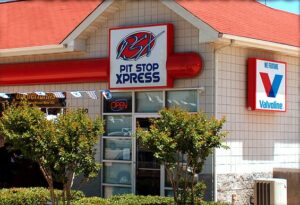 With the use of platinum tipped plugs and distributor less ignitions most newer vehicles only require tune ups every 100,000 miles. Typically a tune up consists of changing spark plugs and spark plug wires. Some older vehicles still have distributor less ignition that requires tune ups more often and consist of changing spark plugs, spark plug wires, distributor cap, and rotor.
With the use of platinum tipped plugs and distributor less ignitions most newer vehicles only require tune ups every 100,000 miles. Typically a tune up consists of changing spark plugs and spark plug wires. Some older vehicles still have distributor less ignition that requires tune ups more often and consist of changing spark plugs, spark plug wires, distributor cap, and rotor.
Your engine running rough is the most obvious sign that your vehicle needs a tune up, but be careful the tune up is not always the answer. Come by, we can help.
Brakes
 We change brake pads and replace or resurface rotors. We will check your brakes for free.nThe ceramic brake pads used now last much longer than years past.
We change brake pads and replace or resurface rotors. We will check your brakes for free.nThe ceramic brake pads used now last much longer than years past.
Transmission Services
 Servicing your automatic transmission, according to your manufacturer’s recommended schedule, is the best way to help maintain proper shifting and prolong the life of your transmission. Most transmission failures are related to overheating and fluid contamination. New transmission fluid cools properly, helping to maintain smooth shifting, and protects against excessive wear. Transmission fluid protects the transmission by capturing debris and deposits that occur during normal driving.
Servicing your automatic transmission, according to your manufacturer’s recommended schedule, is the best way to help maintain proper shifting and prolong the life of your transmission. Most transmission failures are related to overheating and fluid contamination. New transmission fluid cools properly, helping to maintain smooth shifting, and protects against excessive wear. Transmission fluid protects the transmission by capturing debris and deposits that occur during normal driving.
Transmission Drain and Fill
The drain and fill is the way to service manual transmissions, Continuous Velocity Transmissions (CVT), or higher mileage transmission. The drain plug is removed, and fluid is replaced. We catch the removed fluid in a measuring container to ensure accurate refilling. This service is not available for all automatic transmissions because some do not have drain plugs.
Drive Train Service
Differential Service
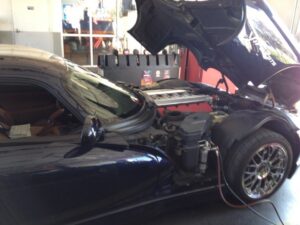
Synthetic Differential Service
The differential is probably the most overlooked service in in two-wheel drive and four-wheel drive pick-up trucks and SUV’s, as well as in rear wheel drive passenger cars and vans. It’s is important that your vehicle’s differential gets the service it deserves. The differential requires regular cleaning and maintenance that can prolong its life substantially and reduce noise, as well as wear and tear. We drain the fluid and a thoroughly flush out the gears to remove dirt and metal particles. The fluid is replaced with new fluid.
- Extends the differential life by protecting it against friction, wear and corrosion
- For safety and the life of your vehicle, make sure a differential fluid service is part of your normal maintenance schedule.
Transfer Case
If you have a 4-wheel drive vehicle, you’ve got a transfer case. The transfer case is serviced by draining its fluid and replacing it with fresh fluid for leaks and inspecting it for damage. Transfer case fluid cools and lubricates the gears, chains, bearings, and shafts. Just like motor oil, the additives wear out and it doesn’t protect as well and gets contaminated. There isn’t a filter in the transfer case, so if the contamination is allowed to stay for too long, it’ll accelerate wear.
Fuel System
Fuel Filter
If equipped, changing the fuel filter every 20,000 miles is the best way to protect your fuel pump.
3 Part Fuel Cleaning
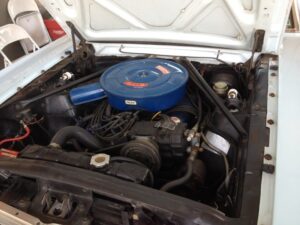 The three part fuel cleaning is a three step fuel cleaning process that removes deposits from the entire fuel and air intake system. Fuel system deposits interfere with proper operation of an engine that can lead to reduced fuel economy, impaired drivability, and increased emission levels. Deposits are a by-product of the engine’s internal combustion process and need to be removed regularly. The three part fuel cleaning removes deposits from the fuel and air intake system which helps restore lost horse power, eliminate rough idle, hesitation and knocking, reduce emissions caused by deposits, and restore efficiency and fuel economy.
The three part fuel cleaning is a three step fuel cleaning process that removes deposits from the entire fuel and air intake system. Fuel system deposits interfere with proper operation of an engine that can lead to reduced fuel economy, impaired drivability, and increased emission levels. Deposits are a by-product of the engine’s internal combustion process and need to be removed regularly. The three part fuel cleaning removes deposits from the fuel and air intake system which helps restore lost horse power, eliminate rough idle, hesitation and knocking, reduce emissions caused by deposits, and restore efficiency and fuel economy.
Steering and Braking
Power Steering Flush
Changing the power steering fluid helps maintain the power steering pump, rack and pinion, and or gear box. Keeping the fluid fresh promotes smooth steering, prevents damage, and prolongs the life of these important components.
Brake Flush
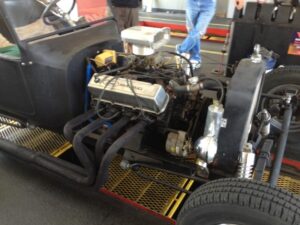 The Brake Flush is another service recommended around 30,000 miles, especially on newer vehicles. Newer vehicles have more complicated braking systems that provide superior braking performance. The Anti-Lock Brake System (ABS) is what makes this better braking performance possible. Because old brake fluid attracts moisture that can contaminate the brake fluid and damage the ABS components it is important to flush your brake system.
The Brake Flush is another service recommended around 30,000 miles, especially on newer vehicles. Newer vehicles have more complicated braking systems that provide superior braking performance. The Anti-Lock Brake System (ABS) is what makes this better braking performance possible. Because old brake fluid attracts moisture that can contaminate the brake fluid and damage the ABS components it is important to flush your brake system.
Cooling System
Radiator Flush
Most vehicles use extended life antifreeze that is recommended to be replaced every 100,000 miles. Over time antifreeze wears out and needs to be replaced to properly protect your cooling system. If your antifreeze is low flushing your antifreeze is not the answer. Your cooling system is a closed system and does not consume antifreeze. If your system has a leak flushing could worsen the leak.
Radiator Replacement
A coolant leak often is a sign that the radiator needs replacing. If your car’s radiator is not functioning properly, the engine will get overheated quickly. You should replace the worn out radiator as soon as possible to avoid engine damage
Serpentine Belt Replacement
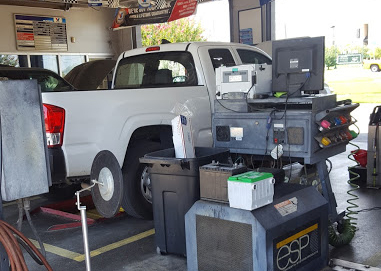 Replacing your serpentine belt based on your manufacturer’s recommended schedule is important. It’s a crucial part of the engine assembly. The serpentine belt transfers power from the engine to operate various engine components, including the alternator, water pump, power steering pump and the air conditioner compressor. It dries out and can start to crack More importantly If it breaks it could leave you stranded! With every full-service oil change we inspect your vehicle’s serpentine belt. We will tell advise you to replace it there are more than three cracks per inch in the ribbed section of the belt or cracks that penetrate more than halfway through the thickness of the belt.
Replacing your serpentine belt based on your manufacturer’s recommended schedule is important. It’s a crucial part of the engine assembly. The serpentine belt transfers power from the engine to operate various engine components, including the alternator, water pump, power steering pump and the air conditioner compressor. It dries out and can start to crack More importantly If it breaks it could leave you stranded! With every full-service oil change we inspect your vehicle’s serpentine belt. We will tell advise you to replace it there are more than three cracks per inch in the ribbed section of the belt or cracks that penetrate more than halfway through the thickness of the belt.
Tire Rotation
Regular tire rotation is required for maintaining safe tire pressure and tire treads depth.
Cabin Air Filter Replacement
A cabin air filter keeps air inside your car from becoming stale and unhealthy. This filter removes as dust, pollen, mold spores, and other small particles from the air that circulates through your cars heating, ventilation and air conditioning (HVAC) system. People with allergies should routinely change the cabin air filter.
Water Pump Replacement
The water pump is another critical component of your car. It pushes the coolant through your car’s cooling system. If your car overheats, or you see a coolant leak, bring your car in and we can get you back on the road again.


